Closed Heart Surgery Cost in Thailand from top hospitals starts from THB 802125 (USD 22500)approx
.Treatment cost
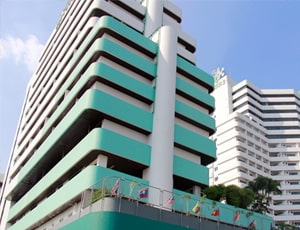
Types of Closed Heart Surgery in Phyathai 2 International Hospital and its associated cost
| Treatment Option | Approximate Cost Range (USD) | Approximate Cost Range (THB) |
|---|---|---|
| Closed Heart Surgery (Overall) | 22202 - 28335 | 810308 - 1020990 |
| Off-Pump Coronary Artery Bypass Grafting | 20506 - 25406 | 731220 - 923713 |
| Valve Repair or Replacement | 25006 - 30873 | 873365 - 1099498 |
| Atrial Septal Defect (ASD) Closure | 17818 - 22637 | 631484 - 806938 |
| Ventricular Septal Defect (VSD) Closure | 17654 - 22584 | 653158 - 810109 |
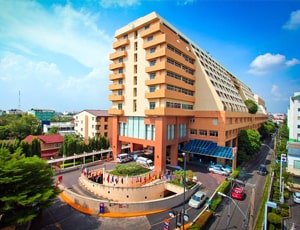
Types of Closed Heart Surgery in Vejthani Hospital and its associated cost
| Treatment Option | Approximate Cost Range (USD) | Approximate Cost Range (THB) |
|---|---|---|
| Closed Heart Surgery (Overall) | 22697 - 27540 | 806182 - 1010226 |
| Off-Pump Coronary Artery Bypass Grafting | 20183 - 26052 | 726196 - 913597 |
| Valve Repair or Replacement | 24878 - 30780 | 888887 - 1082241 |
| Atrial Septal Defect (ASD) Closure | 17652 - 22338 | 643547 - 791763 |
| Ventricular Septal Defect (VSD) Closure | 18027 - 22267 | 630730 - 812590 |
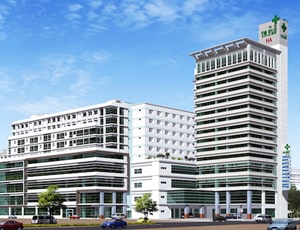
Types of Closed Heart Surgery in Yanhee International Hospital and its associated cost
| Treatment Option | Approximate Cost Range (USD) | Approximate Cost Range (THB) |
|---|---|---|
| Closed Heart Surgery (Overall) | 22832 - 28533 | 794600 - 984114 |
| Off-Pump Coronary Artery Bypass Grafting | 20464 - 26178 | 709019 - 922940 |
| Valve Repair or Replacement | 24606 - 30895 | 875781 - 1091817 |
| Atrial Septal Defect (ASD) Closure | 18151 - 22148 | 646961 - 812025 |
| Ventricular Septal Defect (VSD) Closure | 17997 - 22622 | 643911 - 819178 |

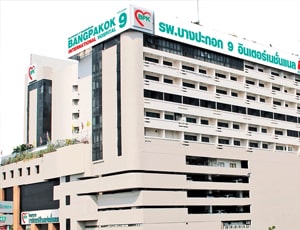
Types of Closed Heart Surgery in Bangpakok 9 International Hospital and its associated cost
| Treatment Option | Approximate Cost Range (USD) | Approximate Cost Range (THB) |
|---|---|---|
| Closed Heart Surgery (Overall) | 22816 - 28389 | 798724 - 1018060 |
| Off-Pump Coronary Artery Bypass Grafting | 19850 - 26020 | 726281 - 937252 |
| Valve Repair or Replacement | 24674 - 31029 | 863053 - 1076614 |
| Atrial Septal Defect (ASD) Closure | 17802 - 22791 | 649032 - 788343 |
| Ventricular Septal Defect (VSD) Closure | 18300 - 22314 | 651494 - 787324 |
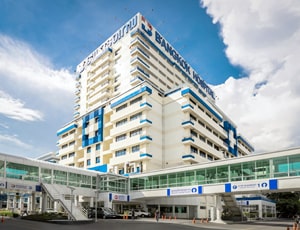
Types of Closed Heart Surgery in Bangkok Hospital and its associated cost
| Treatment Option | Approximate Cost Range (USD) | Approximate Cost Range (THB) |
|---|---|---|
| Closed Heart Surgery (Overall) | 22550 - 27558 | 798305 - 1003989 |
| Off-Pump Coronary Artery Bypass Grafting | 20594 - 25688 | 730578 - 910849 |
| Valve Repair or Replacement | 24707 - 30516 | 892030 - 1103687 |
| Atrial Septal Defect (ASD) Closure | 18180 - 22947 | 642723 - 807111 |
| Ventricular Septal Defect (VSD) Closure | 18067 - 22606 | 655023 - 807222 |
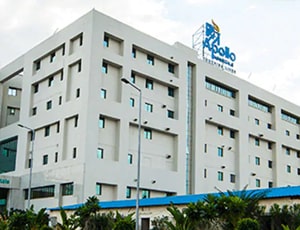
Types of Closed Heart Surgery in Apollo Hospital and its associated cost
| Treatment Option | Approximate Cost Range (USD) | Approximate Cost Range (INR) |
|---|---|---|
| Closed Heart Surgery (Overall) | 6613 - 10314 | 560169 - 840411 |
| Off-Pump Coronary Artery Bypass Grafting | 7908 - 11350 | 654490 - 920051 |
| Valve Repair or Replacement | 8940 - 13509 | 726392 - 1089342 |
| Atrial Septal Defect (ASD) Closure | 5656 - 8865 | 470463 - 744691 |
| Ventricular Septal Defect (VSD) Closure | 5691 - 8866 | 468361 - 728169 |
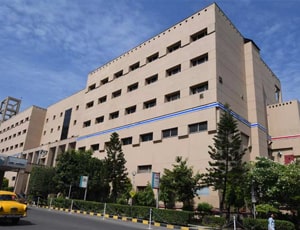
Types of Closed Heart Surgery in Apollo Multispecialty Hospitals and its associated cost
| Treatment Option | Approximate Cost Range (USD) | Approximate Cost Range (INR) |
|---|---|---|
| Closed Heart Surgery (Overall) | 6845 - 10325 | 561190 - 845184 |
| Off-Pump Coronary Artery Bypass Grafting | 7887 - 11426 | 649483 - 922883 |
| Valve Repair or Replacement | 8925 - 13462 | 729829 - 1083771 |
| Atrial Septal Defect (ASD) Closure | 5520 - 9001 | 456622 - 735567 |
| Ventricular Septal Defect (VSD) Closure | 5518 - 8932 | 459512 - 739206 |
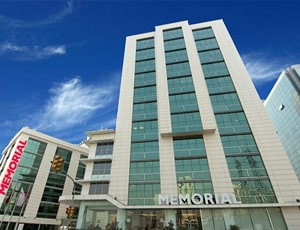
Types of Closed Heart Surgery in Memorial Atasehir Hospital and its associated cost
| Treatment Option | Approximate Cost Range (USD) | Approximate Cost Range (TRY) |
|---|---|---|
| Closed Heart Surgery (Overall) | 10003 - 13335 | 302147 - 398253 |
| Off-Pump Coronary Artery Bypass Grafting | 9189 - 12222 | 268513 - 366076 |
| Valve Repair or Replacement | 10265 - 14360 | 311135 - 435805 |
| Atrial Septal Defect (ASD) Closure | 7707 - 11082 | 233156 - 333357 |
| Ventricular Septal Defect (VSD) Closure | 8049 - 11107 | 240851 - 337859 |
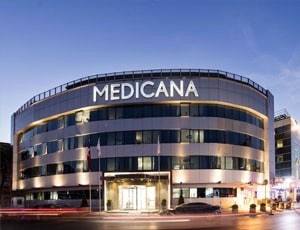
Types of Closed Heart Surgery in Medicana Bahcelievler Hospital and its associated cost
| Treatment Option | Approximate Cost Range (USD) | Approximate Cost Range (TRY) |
|---|---|---|
| Closed Heart Surgery (Overall) | 10081 - 13398 | 298491 - 403388 |
| Off-Pump Coronary Artery Bypass Grafting | 8827 - 12364 | 270066 - 370943 |
| Valve Repair or Replacement | 10138 - 14488 | 301760 - 446317 |
| Atrial Septal Defect (ASD) Closure | 8042 - 11257 | 237272 - 338691 |
| Ventricular Septal Defect (VSD) Closure | 7872 - 11314 | 233417 - 334747 |
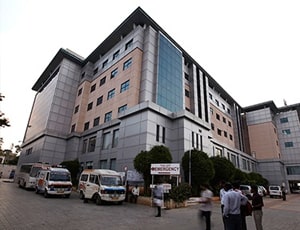
Types of Closed Heart Surgery in BGS Gleneagles Global Hospitals and its associated cost
| Treatment Option | Approximate Cost Range (USD) | Approximate Cost Range (INR) |
|---|---|---|
| Closed Heart Surgery (Overall) | 6820 - 10309 | 546663 - 832107 |
| Off-Pump Coronary Artery Bypass Grafting | 7897 - 11240 | 640860 - 939160 |
| Valve Repair or Replacement | 9178 - 13558 | 723255 - 1108373 |
| Atrial Septal Defect (ASD) Closure | 5723 - 9162 | 462620 - 745765 |
| Ventricular Septal Defect (VSD) Closure | 5554 - 8968 | 466865 - 728752 |
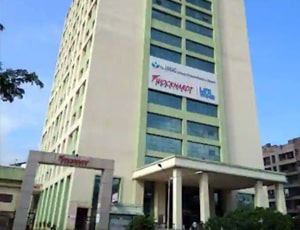
Types of Closed Heart Surgery in Wockhardt Hospital, Umrao and its associated cost
| Treatment Option | Approximate Cost Range (USD) | Approximate Cost Range (INR) |
|---|---|---|
| Closed Heart Surgery (Overall) | 6105 - 9142 | 497733 - 746956 |
| Off-Pump Coronary Artery Bypass Grafting | 7104 - 10111 | 585151 - 831339 |
| Valve Repair or Replacement | 8126 - 12237 | 665913 - 999361 |
| Atrial Septal Defect (ASD) Closure | 5061 - 8148 | 417332 - 665072 |
| Ventricular Septal Defect (VSD) Closure | 5065 - 8096 | 414437 - 665486 |
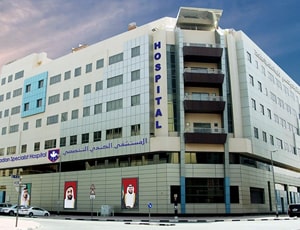
Types of Closed Heart Surgery in Canadian Specialist Hospital and its associated cost
| Treatment Option | Approximate Cost Range (USD) | Approximate Cost Range (AED) |
|---|---|---|
| Closed Heart Surgery (Overall) | 24961 - 31625 | 88974 - 113767 |
| Off-Pump Coronary Artery Bypass Grafting | 22405 - 28686 | 83514 - 104293 |
| Valve Repair or Replacement | 27465 - 33391 | 98506 - 125001 |
| Atrial Septal Defect (ASD) Closure | 20666 - 25542 | 74071 - 93693 |
| Ventricular Septal Defect (VSD) Closure | 20096 - 25543 | 73590 - 96769 |

Types of Closed Heart Surgery in Indraprastha Apollo Hospital and its associated cost
| Treatment Option | Approximate Cost Range (USD) | Approximate Cost Range (INR) |
|---|---|---|
| Closed Heart Surgery (Overall) | 6806 - 9905 | 557229 - 822945 |
| Off-Pump Coronary Artery Bypass Grafting | 7914 - 11379 | 648372 - 926608 |
| Valve Repair or Replacement | 9174 - 13707 | 729240 - 1099028 |
| Atrial Septal Defect (ASD) Closure | 5612 - 9176 | 455477 - 726893 |
| Ventricular Septal Defect (VSD) Closure | 5665 - 9083 | 462430 - 722017 |
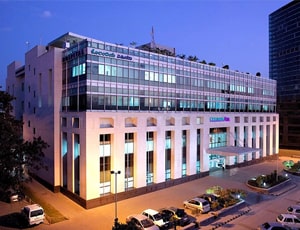
Types of Closed Heart Surgery in Manipal Hospital, Yeshwantpur and its associated cost
| Treatment Option | Approximate Cost Range (USD) | Approximate Cost Range (INR) |
|---|---|---|
| Closed Heart Surgery (Overall) | 6687 - 10280 | 550184 - 832009 |
| Off-Pump Coronary Artery Bypass Grafting | 7845 - 11404 | 647178 - 911926 |
| Valve Repair or Replacement | 8972 - 13787 | 724189 - 1094915 |
| Atrial Septal Defect (ASD) Closure | 5596 - 8816 | 451377 - 749108 |
| Ventricular Septal Defect (VSD) Closure | 5730 - 8971 | 466089 - 731897 |
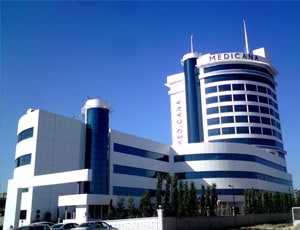
Types of Closed Heart Surgery in Medicana Konya Hospital and its associated cost
| Treatment Option | Approximate Cost Range (USD) | Approximate Cost Range (TRY) |
|---|---|---|
| Closed Heart Surgery (Overall) | 10207 - 13778 | 309493 - 406642 |
| Off-Pump Coronary Artery Bypass Grafting | 9009 - 12554 | 265829 - 367702 |
| Valve Repair or Replacement | 10189 - 14723 | 306969 - 447695 |
| Atrial Septal Defect (ASD) Closure | 7787 - 11387 | 234829 - 341670 |
| Ventricular Septal Defect (VSD) Closure | 7942 - 11351 | 232909 - 340647 |
A heart surgery is typically required for the correction of a defect in the heart. While most of the major defects are treated with the help of open heart surgery, the minor ones can be corrected with the help of closed heart surgery.
A closed heart surgery procedure is performed on patients with minor heart defects. In most of the cases, this approach is used on pediatric patients. A majority of closed heart surgery procedures may involve the major blood vessels that carry blood to the heart and other parts of the body. Some of the examples of procedure performed using closed heart surgery approach include placement of a Blalock-Taussig shunt or pulmonary artery bands and repair of coarctation of the aorta.
The main difference between a closed heart surgery and an open heart surgery is that the former does not require the support of a heart-lung bypass machine during the surgery. That is, a closed heart surgery can be performed on a beating heart, whereas an open heart surgery is performed on a non-beating heart.
Additionally, there is no need for the surgeons to open the chest to access the heart in the case of closed heart surgery. The heart can be accessed through a small hole in the chest (sternotomy) or in the side between the ribs (thoracotomy).
The exact steps performed during a closed heart surgery actually depends on the type of procedure being conducted and the approach used to access the heart. The following are some of the major steps taken during closed heart surgery:
Closed heart surgery is not always performed as a corrective surgery. Sometimes, it may be performed as a palliative surgery as well. A palliative heart surgery is the one that is conducted to target the problems caused due to a heart defect rather than the defect itself. It is mostly performed when a series of surgeries are scheduled to be conducted for the correction of the heart defect such as a hole in the heart and ventricular septal defect.
Recovery after closed heart surgery depends on how well the surgery has been conducted and also on the overall health of the patient. Since closed heart surgery is conducted for the correction of minor heart defects, the overall recovery is good.
In case it is performed as a corrective surgery, the patient is typically discharged from the hospital within a day or two. In case closed heart surgery is performed as a palliative surgery, recovery may take some time and the patient may be kept in the hospital until other planned surgeries are conducted.
Careful monitoring in the intensive care unit (ICU) is required in some cases. The patient is administered pain control medications through an IV line is required. Complete recovery in case of a closed heart surgery may last for a few days.
Ask your healthcare adviser for the best multiple options and choose the one that meets your expectations
USD 22500 is the starting cost of Closed Heart Surgery Surgery in Thailand. Many multispeciality hospitals which are Healthcare Accreditation Institute, JCI certified are approved to operate a Closed Heart Surgery in Thailand
Different hospitals have different pricing policy when it comes to the cost of Closed Heart Surgery in Thailand. The Closed Heart Surgery package cost usually includes all the expenses related to pre and post surgery expenses of the patient. The Closed Heart Surgery cost in Thailand includes the cost of anesthesia, medicines, hospitalization and the surgeon's fee. There are many things that may increase the cost of Closed Heart Surgery in Thailand, including prolonged hospital stay and complications after the procedure.
Many hospitals in Thailand perform Closed Heart Surgery. The top hospitals for Closed Heart Surgery in Thailand include the following:
After discharge from the hospital, the patient has to stay for another 21 days in the country for complete recovery. This time frame is important to ensure that the surgery was successful and the patient is fit to fly back.
Apart from the cost of Closed Heart Surgery, the patient is also required to pay additionally for daily meals and guest house accommodation. The per day extra expenses in Thailand per person are about USD 50 per person.
Some of the best cities in Thailand which offer Closed Heart Surgery are:
Patients who are interested in availing telemedicine consultation before they travel for Closed Heart Surgery in Thailand can opt for the same. There are many Closed Heart Surgery surgeons who offer video telemedicine consultation, including the following:
| Doctor | Cost | Schedule Your Appointment |
|---|---|---|
| Dr. Vichai Benjacholamas | USD 81 | Schedule Now |
After the Closed Heart Surgery takes place, the average duration of stay at the hospital is about 4 days. The patient is subjected to several biochemistry and radiological scans to see that everything is okay and the recovery is on track. After making sure that patient is clinically stable, discharge is planned.
There are more than 5 hospitals that offer Closed Heart Surgery in Thailand. The above mentioned clinics have the required infrastructure and a dedicated unit where patients can be treated. These hospitals comply with all the rules and regulations as dictated by the regulatory bodies and medical association in Thailand
Some of the top medical specialists for Closed Heart Surgery in Thailand are: